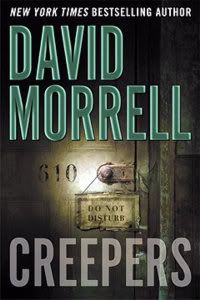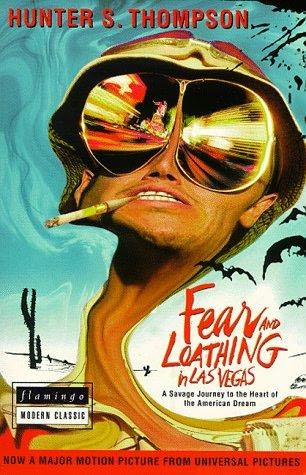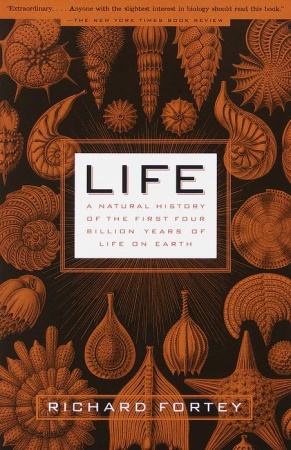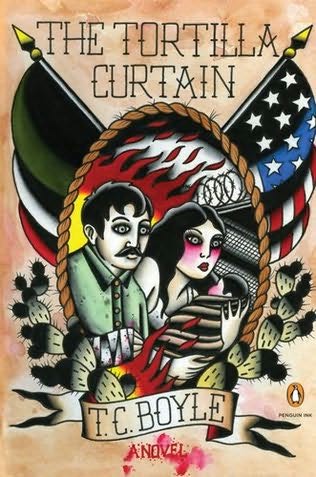-
Hey, guest user. Hope you're enjoying NeoGAF! Have you considered registering for an account? Come join us and add your take to the daily discourse.
You are using an out of date browser. It may not display this or other websites correctly.
You should upgrade or use an alternative browser.
You should upgrade or use an alternative browser.
What are you reading, April?
- Thread starter Eric P
- Start date
- Status
- Not open for further replies.
Kola said:I'm starting on a little vacation to Denmark soon, and as there's nothing else to do than wander on the North Sea shore and reading at this time of year, I bought myself some books.
First

There's no exact counterpart for this edition in English, but I think it is included here:
http://www.amazon.com/Essays-Aphorisms-Penguin-Classics-Schopenhauer/dp/0140442278/ref=pd_bbs_sr_3?ie=UTF8&s=books&qid=1207241344&sr=8-3
After that I will continue with good ol' Nietzsche:

English translation seems to be quite good.
http://www.amazon.com/Anti-Christ-Friedrich-Nietzsche/dp/1599866315/ref=pd_bbs_1?ie=UTF8&s=books&qid=1207241810&sr=1-1
To be concluded with this one:

http://www.amazon.com/Narcissus-Goldmund-Hermann-Hesse/dp/0553275860/ref=pd_bbs_sr_2?ie=UTF8&s=books&qid=1207242038&sr=1-2
Beautiful! Great, fine books you got there! Kudos!
Here's what I'm reading (not kidding at all!!!):

What I recently just finished reading (a week ago):

Shiggie said:Just started this a day ago.
http://www.fantasticfiction.co.uk/images/x1/x5290.jpg[img]
[/QUOTE]
Stop reading it and watch the movie. Then start reading The Rum Diary by Hunter S. Thompson.
i'm back after my "vacation"
anyway, i finished up Christna Falls by Benjanim Black. Snore Fest. Literary Crime Fiction written by someone who didn't really understand the genre.
However an interview in Cemetary Dance led me to this

by the author of First Blood, the book we get Rambo from.
this book is absolutely fucking amazing.
it's a book without any supernatural elements but the first half is written as a ghost story and the last half is balls to the wall action.
This book is so highly recommended for FNORDCHAN that it's a bit silly for me to say anything other than Everyone who enjoys Genre Fiction should read this book.
Period.
I'm reading the sequel which is about video games and time capsules and it doesn't make gamers look like absolute asses.
anyway, i finished up Christna Falls by Benjanim Black. Snore Fest. Literary Crime Fiction written by someone who didn't really understand the genre.
However an interview in Cemetary Dance led me to this

by the author of First Blood, the book we get Rambo from.
this book is absolutely fucking amazing.
Morrell takes a creative kind of breaking-and-entering as the premise for his latest thriller (after Nightscape), a gripping story that demands to be read in a single sitting. Disguising himself as a journalist, Frank Balenger, ex-U.S. Army Ranger and Iraqi war veteran, joins a group of "Creepers," also known as infiltrators, urban explorers or city speleologistsmen and women who outfit themselves with caving gear to break into and explore buildings that have long been closed up and abandoned. Though what they're doing is technically illegal, participants pride themselves on never stealing or destroying anything they find at these sites. They take only photographs and aim to leave no footprints. Balenger joins a group of four: the leader, Professor Robert Conklin, high school teacher Vincent Vanelli and graduate students Rick and Cora Magill. This gang infiltrates the Paragon Hotel, an abandoned, seven-story, pyramidal Asbury Park, N.J., structure built in 1901 by eccentric, hemophiliac Morgan Carlisle. Balenger and the professor have a special agenda, but the others are there simply for the thrills. Things quickly begin to unravel in life-threatening ways once the intrepid infiltrators penetrate the buildingthey aren't the only ones creeping around the spooky hotel. Morrell delivers first-rate, suspenseful storytelling once again.
it's a book without any supernatural elements but the first half is written as a ghost story and the last half is balls to the wall action.
This book is so highly recommended for FNORDCHAN that it's a bit silly for me to say anything other than Everyone who enjoys Genre Fiction should read this book.
Period.
I'm reading the sequel which is about video games and time capsules and it doesn't make gamers look like absolute asses.
Doesn't seem like there's a dedicated "reading recommendations request" thread, so I guess this thread will be OK?
Anyway I've reached the end of my latest batch of reading material and as far as I can tell I've pretty much exhausted the SF subgenres that I'm a fan of (although I'd be happy to be proved wrong on that score). So I'm looking at urban fantasy - that's to say, stuff like Jim Butcher's "The Dresden Files", Kelly McCullough's "WebMage", Simon R. Green's "Secret Histories" (though there's only one book out in that series so far), even Rick Cook's "Wiz Biz". Now, I've read all of those I just mentioned, but can someone recommend me some more titles in the urban fantasy subgenre that I might like, based on that?
Anyway I've reached the end of my latest batch of reading material and as far as I can tell I've pretty much exhausted the SF subgenres that I'm a fan of (although I'd be happy to be proved wrong on that score). So I'm looking at urban fantasy - that's to say, stuff like Jim Butcher's "The Dresden Files", Kelly McCullough's "WebMage", Simon R. Green's "Secret Histories" (though there's only one book out in that series so far), even Rick Cook's "Wiz Biz". Now, I've read all of those I just mentioned, but can someone recommend me some more titles in the urban fantasy subgenre that I might like, based on that?
Danj said:Doesn't seem like there's a dedicated "reading recommendations request" thread, so I guess this thread will be OK?
Anyway I've reached the end of my latest batch of reading material and as far as I can tell I've pretty much exhausted the SF subgenres that I'm a fan of (although I'd be happy to be proved wrong on that score). So I'm looking at urban fantasy - that's to say, stuff like Jim Butcher's "The Dresden Files", Kelly McCullough's "WebMage", Simon R. Green's "Secret Histories" (though there's only one book out in that series so far), even Rick Cook's "Wiz Biz". Now, I've read all of those I just mentioned, but can someone recommend me some more titles in the urban fantasy subgenre that I might like, based on that?
RUN TO THE STORE RIGHT NOW AND GET KING RAT BY CHINA MIEVILLE
and Perdido Street Station
There's a TON of urban fantasy out currently, most of it dealing with london.
there was recently released an anthology of urban fantasy, but i can't recall what it's called.
Also you may want to check out stuff like The Tomb by F Paul Wilson. It's more horror/dark fantasy, but I think you'd enjoy it based on your listing of some other books.
Also, damn near anything by Kim Newman
Eric P said:This book is so highly recommended for FNORDCHAN that it's a bit silly for me to say anything other than Everyone who enjoys Genre Fiction should read this book.
I hear and obey!
FNORDCHAN
FnordChan said:I hear and obey!
FNORDCHAN
i read it in like 4 hours and was so happy i had the sequel waiting for me
omnomnomnomnomnomnomnom
Danj said:So I'm looking at urban fantasy - that's to say, stuff like Jim Butcher's "The Dresden Files", Kelly McCullough's "WebMage", Simon R. Green's "Secret Histories" (though there's only one book out in that series so far), even Rick Cook's "Wiz Biz". Now, I've read all of those I just mentioned, but can someone recommend me some more titles in the urban fantasy subgenre that I might like, based on that?
I've been on a similar kick recently, tearing through Dresden Files novels and looking for similar material to enjoy. If you're brave enough to venture over to the romance section of the bookstore, check out Eileen Wilks' World of the Lupi series, beginning with Tempting Danger. The setup: she's a cop, he's a werewolf, they fight crime and occasionally have sex. Okay, so it isn't going to win points for originality, but the series does have a lot going for it: an interesting main character (who, unlike a lot of folks in these books, actually has a family to interact with), suitably snarky dialog, and remarkably little passionate lovin' for something filed in the romance category. The whole series is like this, with strong romantic themes tempered by heavy doses of, you know, plot and characterization. Astonishing! There are four books in the series so far and I've enjoyed all of 'em quite a bit, particularly the first two. They're fluff, but they sound like they might be your kind of fluff.
FnordChan
Eric P said:i read it in like 4 hours and was so happy i had the sequel waiting for me
omnomnomnomnomnomnomnom
i finished the sequel, Scavenger, this morning @ 4:30 AM (thank you fucking work stress) and while a strong book, i don't feel it's as strong as Creeper.
I have also been reading a lot of Manga
Emma i like but don't know if i'll continue it because two volumes in and it hasn't "hooked" me. my favorite romance manga is still maison ikkoku, and while it's unfair to compare two wildly different tones in stories, this one just didn't instantly get me into the "will they or won't they" aspect of the story line.
Dragon Head. This won a ton of awards and it's well liked but the first two volumes are really kind of boring/lame. i may keep at it.
drifting classroom. two volumes in and it's different. i like it but don't feel complelled to read what's coming next.
monster - omfg moar. thankfully this ends in dec of this year and i have plenty of catching up to do. I've already ordered up to vol 5 from amazon.
I haven't decided what I'm going to read next.
I need to read the Berlin Noir book I've discussed previously but then I also kind of want to read Sunset and Sawdust, which opens with a rape turned murder when the woman being raped manages to grab her attacker's gun and shoot him in the head. this takes place in 1930s east texas and it's written by Joe R Lansdale, so I KNOW it will be absolutely excellent reading.
Gamer @ Heart
Member
I was at Border's and just randomly decided to pick this up.

I just wanted to get back into reading and i figuered fantasy was the way to go.

I just wanted to get back into reading and i figuered fantasy was the way to go.
The Orange
Member

I haven't formed an opinion on this one yet, it's "interesting", I'll say that :lol.
Thriller said:
i HATED this book by the time i finished it, which is a shame because i loved most of it
Thriller
Member
Eric P said:i HATED this book by the time i finished it, which is a shame because i loved most of it
may i ask why?
Recently, me and the GF were walking down Venice Beach and a dreaded up hippie was trying to sell a couple of books. One that he wrote, called The Little White Trip, and one that someone else wrote. He was only asking 10 bucks for both of them, so we gave it a shot. Wow, The Little White Trip was one of the best books I have read in a long time. I can't really tell you guys what it's about because it will totally ruin the book, but trust me it's WELL worth your time.
here's the link
http://www.amazon.com/dp/0977930432/?tag=neogaf0e-20
here's the link
http://www.amazon.com/dp/0977930432/?tag=neogaf0e-20
Thriller
Member
Mifune said:The Tortilla Curtain was pretty great. I really need to read more T.C. Boyle.
indeed, im looking forward to the movie actually
OH while i was banned i found a most interesting book.

i haven't read it yet, but i'm very much looking forward to doing so.
sadly it is long out of print, but i was able to secure a copy via amazon for not that much money (first edition no less. something which wasn't alluded to on the sale page)

The Iron Dream is a metafictional 1972 alternate history novel by Norman Spinrad.
The book has a nested narrative that tells a story within a story. On the surface, the novel presents an unexceptional science fiction action tale entitled Lord of the Swastika. This is a pro-fascist narrative written by an alternate history version of Adolf Hitler, who in this timeline emigrated from Germany to America and used his modest artistical skills to become first a pulp-SF illustrator and later a science fiction writer in the L. Ron Hubbard mold (telling lurid, purple-prosed adventure stories under a thin SF-veneer). Spinrad seems intent on demonstrating just how close Joseph Campbell's Hero with a Thousand Faces and much science fiction and fantasy literature can be to the racist fantasies of Nazi Germany. The nested narrative is followed by a faux scholarly analysis by a fictional literary critic, Homer Whipple, of New York University.
i haven't read it yet, but i'm very much looking forward to doing so.
The Iron Dream won critical acclaim, including a Nebula Award nomination and a Prix Tour-Apollo Award. Ursula K. Le Guin wrote in a review that: "We are forced, insofar as we can continue to read the book seriously, to think, not about Adolf Hitler and his historic crimesHitler is simply the distancing mediumbut to think about ourselves: our moral assumptions, our ideas of heroism, our desires to, lead or to be led, our righteous wars. What Spinrad is trying to tell us is that it is happening here."[3]
In 1982, the book was "indexed" (i.e., de facto banned) in Germany by the Bundesprüfstelle für jugendgefährdende Medien for its alleged promotion of Nazism; Spinrad's publisher, Heyne Verlag, challenged this in court and, until the ban was overturned in 1990, the book could be sold, but not advertised or publicly displayed.
Ironically, the American Nazi Party put the book on its recommended reading list, despite the satirical intent of the work. [4] In Spinrad's own words:
To make damn sure that even the historically naive and entirely unselfaware reader got the point, I appended a phony critical analysis of Lord of the Swastika, in which the psychopathology of Hitler's saga was spelled out by a tendentious pedant in words of one syllable.
Almost everyone got the point...
And yet one review appeared in a fanzine that really gave me pause. "This is a rousing adventure story and I really enjoyed it," the gist of it went. "Why did Spinrad have to spoil the fun with all this muck about Hitler?"
sadly it is long out of print, but i was able to secure a copy via amazon for not that much money (first edition no less. something which wasn't alluded to on the sale page)
Eric, I'm about a fourth of the way through Creepers and am digging it. I'll report back when I'm done. Meanwhile, the Iron Dream sounds pretty fascinating, anything by Joe Landsdale rules, and I'm torn on Emma: I love the series without reservation, so my instinct is to tell you to stick with it, but if the first two volumes didn't sell you on the rest I dunno if you should bother. Hrm.
Oh, and I'm finally working through my Golgo 13 backlog. "Telepath" in Volume 8 was freakin' awesome.
FnordChan
Oh, and I'm finally working through my Golgo 13 backlog. "Telepath" in Volume 8 was freakin' awesome.
FnordChan
FnordChan said:Eric, I'm about a fourth of the way through Creepers and am digging it. I'll report back when I'm done. Meanwhile, the Iron Dream sounds pretty fascinating, anything by Joe Landsdale rules, and I'm torn on Emma: I love the series without reservation, so my instinct is to tell you to stick with it, but if the first two volumes didn't sell you on the rest I dunno if you should bother. Hrm.
Oh, and I'm finally working through my Golgo 13 backlog. "Telepath" in Volume 8 was freakin' awesome.
FnordChan
Here's Ursula K LeGuin's notes on The Iron Dream.
http://www.depauw.edu/sfs/backissues/1/leguin1art.htm
I started to read Berlin Noir last night and it's got a really good sense of setting directly from the get go. i'm only about 20 pages in, so we're just now getting to the case in question for March Violets. Lots of talky exposition ("you're the detective who blah blah blah"), but then there's these little neat details (like the code words used by the german gov't to hide their military ambitions in the mid-30s"Sports Flyer" meaning "fighter pilot").
I'll give Emma two more volumes, but I'm going to hold off until I am caught up in Monster. I'm pretty sick of still seeing the Hospital Director's daughter.
The sequel to Creepers is pretty good like i said, but I'm slightly hesitant to suggest it without reservation. It kind of fell apart at the end and I found the actual plot to be too common and the tone to be a bit off as well. It was written/researched in 2006 and it discusses an MMORPG and the one that the author uses to introduce the genre is Anarchy Online rather than WoW? I would think even a casual examination of the genre would have bypassed AO during that time frame. But that's just a small nitpick
Eric P said:I'll give Emma two more volumes, but I'm going to hold off until I am caught up in Monster. I'm pretty sick of still seeing the Hospital Director's daughter.
If you give Emma two more volumes, you're almost finished with the series. That said, I'm pretty confident you'll be suitably into it by then, so by all means stick with it.
The sequel to Creepers is pretty good like i said, but I'm slightly hesitant to suggest it without reservation. It kind of fell apart at the end and I found the actual plot to be too common and the tone to be a bit off as well. It was written/researched in 2006 and it discusses an MMORPG and the one that the author uses to introduce the genre is Anarchy Online rather than WoW? I would think even a casual examination of the genre would have bypassed AO during that time frame. But that's just a small nitpick
That is a bit weird. Maybe the author either knew someone who played AO or was into it himself. Either way, I'll keep in mind that the sequel isn't quite as crucial as Creepers. Besides, after I'm done with it, I'll probably get back on the Repairman Jack bandwagon.
FnordChan
Femmeworth
Banned
My library just got the advanced copy of this:

I'm really liking it so far.
Also I just started:


I'm really liking it so far.
Also I just started:

FnordChan said:If you give Emma two more volumes, you're almost finished with the series. That said, I'm pretty confident you'll be suitably into it by then, so by all means stick with it.
That is a bit weird. Maybe the author either knew someone who played AO or was into it himself. Either way, I'll keep in mind that the sequel isn't quite as crucial as Creepers. Besides, after I'm done with it, I'll probably get back on the Repairman Jack bandwagon.
FnordChan
just in time for the YA prequel series to hit in May.
oh, also this caught my eye.
http://www.latimes.com/features/books/la-bkw-park20apr20,1,4635937.story
I can't find the review I originally read, but this one sufficiently covers what interests me about the book
- Status
- Not open for further replies.














